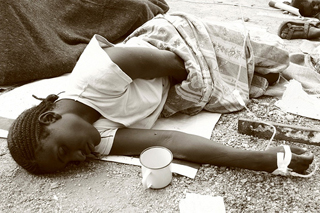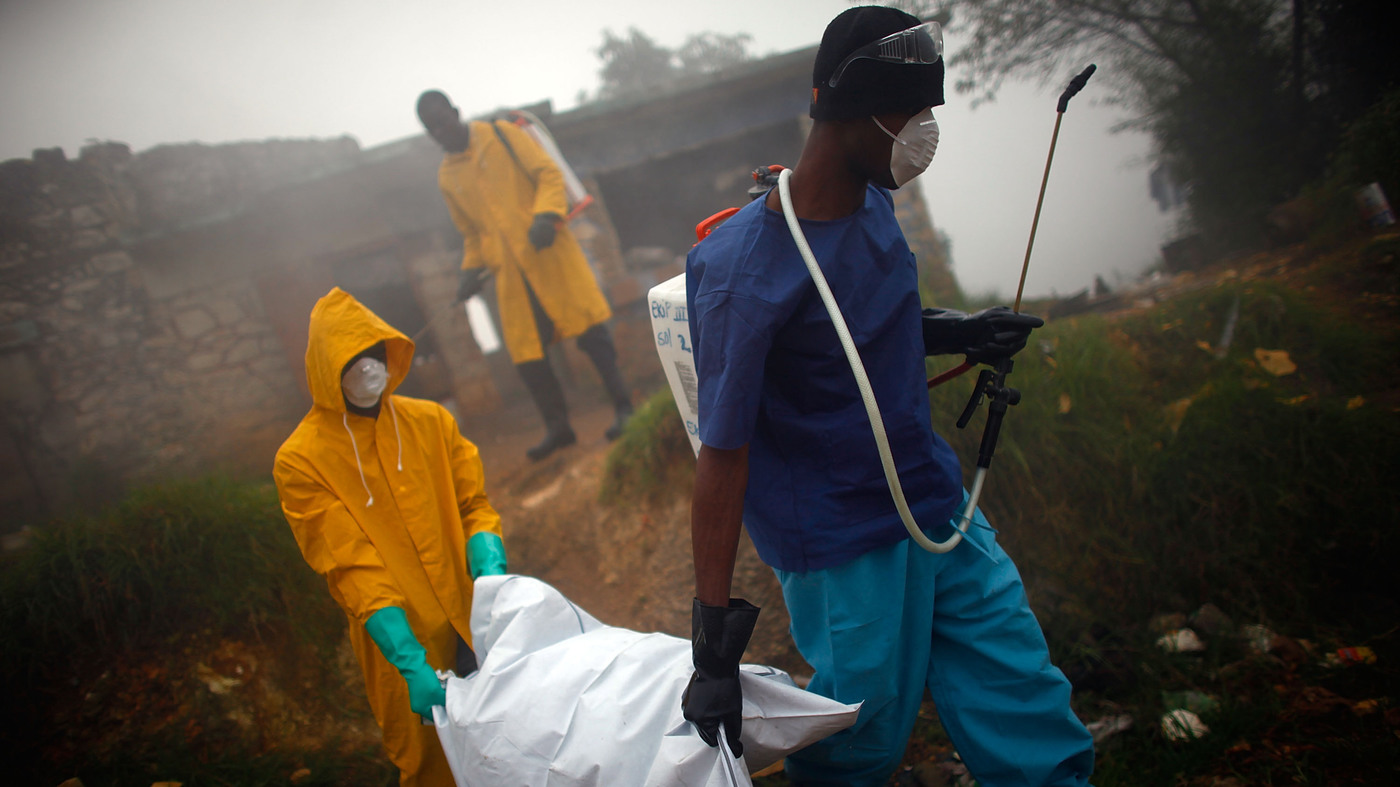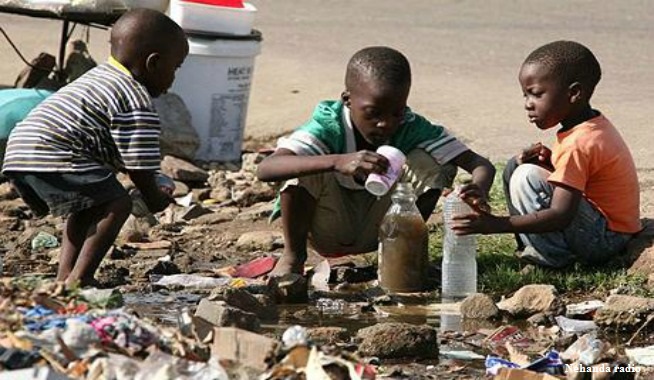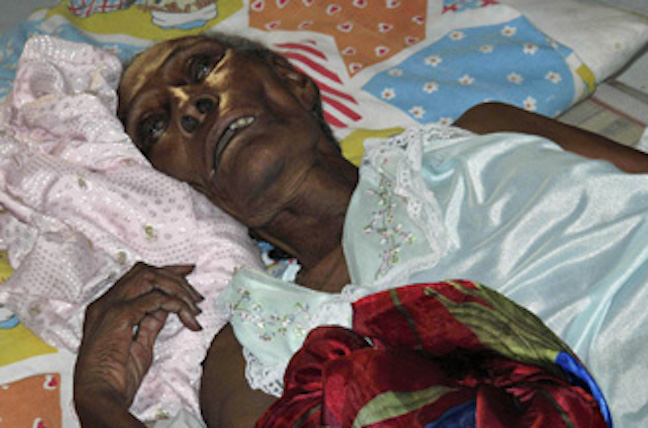Cholera remains on the rampage in Sudan; UN refuses to use the “C-word”
Eric Reeves | June 11, 2017 | http://wp.me/p45rOG-23V
The yearlong cholera epidemic in Sudan continues to spread and now threatens Darfur camps with catastrophe; at the same time, the UN is buckling under the Khartoum regime’s pressure not to use the actual name of the disease, which has been positively identified in laboratory settings as cholera. Instead, the UN continues to use the phrase “Acute Watery Diarrhea”—this in deference to Khartoum’s refusal to allow the word “cholera” to be publicly uttered. As Radio Dabanga reports:
The Sudanese authorities refuse to make any reference to the disease being cholera. Last week, the Khartoum Health Ministry dismissed the director of the Omdurman Emergency Hospital for reporting “cholera cases.” Three activists of the Sudanese Congress Party who conducted a cholera awareness campaign in Khartoum North were detained on Wednesday.
The media have been warned not to report on the outbreak as well. In April, security officers held a correspondent of El Sayha newspaper in eastern Sudan’s El Gedaref because he published an article about “cholera.” (the full Radio Dabanga dispatch of June 11, 2017 appears below)
Cholera is a world-wide scourge; Haiti, Zimbabwe, and Yemen have been particularly hard hit in recent years. The Khartoum regime refuses to acknowledge that it is facing a cholera epidemic, even as treatment must be urgently provided to victims
UN refusal to be explicit in its humanitarian bulletins on Sudan about the existence of cholera in Sudan is consistent with past behavior, in which UN officials and agencies have failed to publish completed malnutrition studies, allowed its public statements to be vetted by Khartoum officials, has deliberately misrepresented humanitarian conditions in Darfur, and most outrageously has been guilty of lowering its estimates of the number of IDPs in camps in Darfur in order to satisfy Khartoum. On this score, see especially:
“How many Internally Displaced Persons (IDPs) are there in Darfur?” Dissent Magazine, April 28, 2011
Since estimates of required humanitarian resources are largely based on the number people in IDP camps, the effect of such artificial lowering of IDP estimates affects the entire displaced population in Darfur.
Why?
The trade-off is painfully clear: Khartoum has threatened to expel more humanitarian organizations and/or UN agencies; and the UN—to maintain a humanitarian presence—accedes to Khartoum’s conditions.
At the same time, the diminishment of humanitarian access, by means of downplaying actual humanitarian requirements, makes a grim mockery of the claim by Obama administration UN Ambassador Samantha Power that there has been a “sea change of improvement” in humanitarian access. This was a gross falsehood as it stood, and yet has been corrected by no government official. It is adamantly rejected by non-UN humanitarians on the ground in Darfur and South Kordofan, and by knowledgeable career officials in the U.S. government speaking confidentially. As the decision about the permanent lifting of U.S. economic sanctions on Khartoum rapidly approaches (it is due to be made by July 13, 2017), crediting this brutal regime in such fashion makes the U.S. complicit in the vast and cruel barbarism of systematic denial of humanitarian access to desperate civilian populations, already suffering terribly and dying in great numbers for lack of international relief efforts.
In the specific case of cholera, failing to acknowledge the various means by which the Khartoum regime compels reductions or re-definitions of humanitarian needs/access, the U.S., the UN, the EU, the African Union, and other regional and international actors are allowing a wildly contagious disease to remain unnamed.
Lack of clean water
Also today, Radio Dabanga reports on acute water shortages throughout Sudan, the product of years of neglect by the National Islamic Front/National Congress Party regime of the water infrastructure in the country. Fecal contamination of water is the most common way in which cholera is spread, and the marginalized and peripheral regions of the country have been most hard hit; but cholera has now reached Khartoum, which is also without the ability to provide sufficient clean water to Sudanese citizens, who have suffered terribly under NIF/NCP tyranny for 28 years. (The anniversary of the military coup that brought this brutal regime to power—and which prolonged by over fifteen years the ghastly civil war with South Sudan, costing more than 2 million of lives—is June 30.)
The most important way to prevent cholera is by providing adequate supplies of clean water, something the Khartoum regime has never committed to during its 28 years in power
Most ominously, Radio Dabanga reports that acute water shortages are being experienced in Zamzam camp outside El Fasher, capital of North Darfur:
A North Darfur activist told Radio Dabanga that the heads of the residential districts of El Fasher locality demanded “actions on the ground instead of words in the air” from Commissioner El Tijani Abdallah in a meeting in El Fasher last week.
The more than 150,000 displaced people living in the Zamzam camp near El Fasher are as well suffering from thirst. “Many people cannot afford to pay SDG 30 ($4.50) for a barrel of water in the camp,” a Zamzam camp elder said. (again, the full Radio Dabanga dispatch of June 11, 2017 appears below)
Were cholera to strike the population of Zamzam, it would spread like wildfire and quickly overwhelm available humanitarian resources. And since Khartoum is determined to dismantle the IDP camps of Darfur—an ambition publicly announced on numerous occasions—there is little reason to believe that the regime would expedite emergency treatment supplies for cholera (which besides being highly contagious can kill very quickly, even as mortality is quite low if treatment—primarily hydration—begins promptly).
No doubt even in the event of a massive cholera outbreak in Darfur the regime would insist that the “C-word” not be used, inevitably slowing the humanitarian response and costing an untold number of lives.
The rainy season is beginning, which threatens to flood latrines and overwhelm inadequate sanitation resources in many locations. These are the worst possible conditions for a cholera epidemic to strike Darfur.
Khartoum’s plan to dismantle and empty the camps may be on the verge of a ghastly success by the cruelest of means.
***********************************************************
“About 15,000 suspected diarrhoea cases reported in Sudan”: UN Office for the Coordination of Humanitarian Affairs
Radio Dabanga | June 11, 2017 | KHARTOUM
According to the latest joint epidemiological bulletin by the Sudanese Ministry of Health and World Health Organization (WHO), almost 15,000 suspected cases of Acute Watery Diarrhoea, including 279 deaths, were reported in Sudan between mid-August 2016 and 2 June this year.
Since the last reporting period (epidemiological week 22), a total of 1,373 new cases were reported, including 16 deaths, the Health Ministry and WHO said. Overall 67 localities in Blue Nile, Sennar, El Gedaref, Kassala, Red Sea, Northern State, River Nile, Khartoum, North Kordofan, El Gezira, and White Nile states are affected, the UN Office for the Coordination of Humanitarian Affairs (OCHA) in Sudan said in its bulletin last week.
The South Kordofan Health Ministry reported to WHO a cumulative number of 83 AWD cases since 24 May, affecting six out of 17 localities.
According to epidemiological findings, about 87 per cent of the affected population are five years of age and above, while nine percent are under five years. All patients with AWD presented symptoms of diarrhoea and 80 percent reported vomiting, while 8.8 percent showed symptoms of abdominal pain, and 1.8 percent reported fever.
“WHO procured more Diarrhoeal Diseases Kits and Rapid Response Kits, which will be distributed to target states early next week,” the OCHA bulletin reads.
Last week, the federal Minister of Health, Bahar Abugarda, told the national parliament that between August 2016 and May this year 14,659 people were infected and 292 died of watery diarrhoea.
Cholera
The Sudanese authorities refuse to make any reference to the disease being cholera. Last week, the Khartoum Health Ministry dismissed the director of the Omdurman Emergency Hospital for reporting “cholera cases.” Three activists of the Sudanese Congress Party who conducted a cholera awareness campaign in Khartoum North were detained on Wednesday.
The media have been warned not to report on the outbreak as well. In April, security officers held a correspondent of El Sayha newspaper in eastern Sudan’s El Gedaref because he published an article about “cholera”.
Cholera is a fast-developing, highly contagious infection that can spread in areas short of clean drinking water and with poor sanitation. In September last year Radio Dabanga received the first reports about cholera cases, in Blue Nile state. Since then, the disease spread in eastern Sudan, and later to the Northern State and central Sudan’s El Gezira. In April, sources in White Nile state reported a rapid spread of cholera. The disease then spread to North Kordofan, and fully hit Khartoum in May.
White Nile
White Nile state is probably the most affected state until now. OCHA reported that Governor Abdelhameed Kasha led a High Acute Watery Diarrhoea (AWD) Containment Committee Meeting in El Duweim locality on 2 June. The meeting, attended by representatives of the state and the federal Health Ministries, WHO, the UN Children’s Fund (UNICEF), other partners, and community-based organisations, discussed the current situation in all White Nile localities.
The governor requested the UN agencies to increase their support in the fields of health, and Water, Sanitation and Hygiene (WASH) to contain the outbreak. He directed the governmental Water Corporation to improve the water quality in its water stations, and coordinate with UNICEF the installation of new tanks and bladders from Oxfam in the affected villages.
In the past week, WHO carried out the training for Rapid Response Team (RRT) members on case management and infection prevention control for 65 participants from nine localities of White Nile state. At least 269 water samples were taken for water quality testing, of which 217 had the optimum dose of chlorine and were safe for use.
Four cleaning campaigns were carried out and 200.6 metric tonnes (MT) of waste was disposed, out of the targeted 363 MT. Food inspection activities were conducted in Kosti and Rabak localities, OCHA reported.
Cholera among South Sudanese refugees
The health authorities in South Sudan did acknowledge the spread of cholera in various parts of the country, and a vaccination campaign was started.
OCHA said in its bulletin that the Sudanese Ministry of Health has requested WHO to use the remaining 112,000 oral cholera vaccine for the South Sudanese refugees in South Kordofan. A campaign targeting 51,000 refugees is planned to be carried out on 8-10 June.
Epidemiological Corporation
On Thursday, Sudan’s National Epidemiological Corporation issued a report on the spread of watery diarrhoea in White Nile state, North and South Kordofan, Khartoum, Sennar, River Nile state, and Northern State.
El Fatih Omar El Sayed, member of the National Epidemiological Corporation told Radio Dabanga on Friday that the numbers were provided by the hospitals. He pointed out that the numbers are not comprehensive. “As for Khartoum, there is a discrepancy between the numbers reported by the federal and the state Ministries of Health.” The medic strongly criticised the authorities’ continued silence on cholera, and warned for a further spreading of the epidemic.
******************************************************
“Drinking water crisis in Sudanese capitals”
June 11, 2017 | EL FASHER / PORT SUDAN / ED DAMAZIN
https://www.dabangasudan.org/en/all-news/article/drinking-water-crisis-in-sudanese-capitals
Since the beginning of the fasting month of Ramadan, the capitals of North Darfur, Red Sea, and Blue Nile states are witnessing a severe shortage of drinking water.
Residents of El Fasher, Port Sudan, and Ed Damazin complained to Radio Dabanga that they struggle to collect enough drinking water to break the fast.
A North Darfur activist told Radio Dabanga that the heads of the residential districts of El Fasher locality demanded “actions on the ground instead of words in the air” from Commissioner El Tijani Abdallah in a meeting in El Fasher last week.
The more than 150,000 displaced people living in the Zamzam camp near El Fasher are as well suffering from thirst. “Many people cannot afford to pay SDG 30 ($4.50) for a barrel of water in the camp,” a Zamzam camp elder said.
Port Sudan
An activist reported from Port Sudan, the capital of eastern Sudan’s Red Sea state, that the water crisis increased “since the beginning of the holy month of Ramadan”.
He said that most of the city’s districts are suffering from long water outages. “The El Mirghaniya and Tamei districts are cut off since months.”
Pipeline
The residents of the Erkawit district in the northern part of Blue Nile state capital Ed Damazin are complaining of thirst because “the water pipeline stopped providing water four months ago”.
They complained about the commercial water prices. “We now have to pay SDG 24 ($4) for a barrel of water,” a housewife reported from Erkawit.
(all emphases in bold and bold red have been added—ER)



